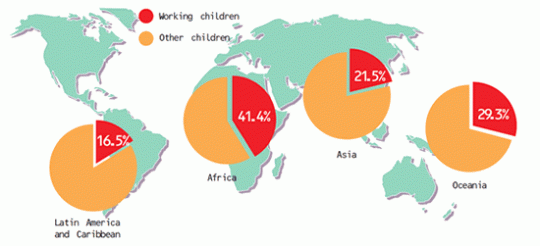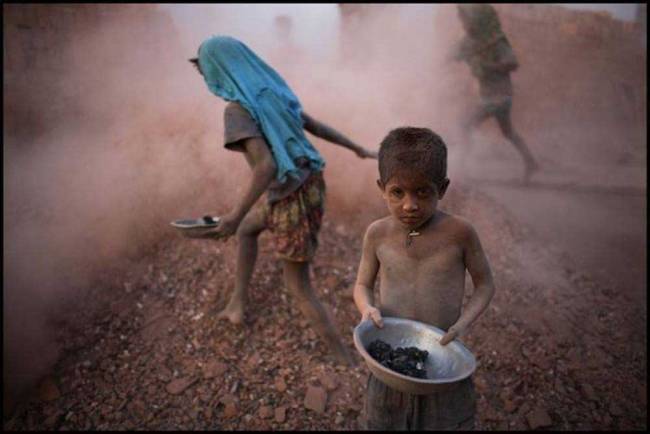Understanding what child labour is…
Child labour refers to those in hazardous occupations or under the minimum employment age, with the minimum age being 14 (too young!). Although child labour has existed for many decades, it has recently become a burning global social issue, predominantly starting in the 1990s.
The western definition states that a child is a being of innocence, granted protection and autonomy. That being said, the definition and age range of a child changes along with the different cultural contexts.
Being a child…
When considering the concept of a child, a few things come to mind: a being with a blank slate, innocence, imagination, playfulness and being care and stress free. The notion of childhood is lost when a child is forced to work, especially at a young age, instead of getting an education and/or participating in normal childhood activities such as playing with friends.
This video emphasizes the impact that child labour has on the millions of children who work long shifts, majority of the time in hazardous conditions receiving little to no pay every single day (and many sacrifice attending school due to work). http://www.youtube.com/watch?v=13PT_HW4wdk
*This image is comparing the percentage of working children versus ‘other’ children in Latin American and Caribbean, Africa, Asia and Oceania.
Children’s voices are often ignored. Especially in contemporary society, children should have an equal right to voice their choices and opinions within their community that directly affect their lives. A specific example of a choice children should have a say in is whether or not they work.
It is wrong for a child to be forced into labour without giving them a choice.
Education is important…
One main reason (amongst many others) why it is wrong for an individual to be forced into working is simply because child labour conflicts with education. Education allows children to obtain skills and knowledge that they can be used in everyday life. By holding children back to work instead of receiving an education, we are not allowing them to have the tools to succeed and reach their full potential in society. In addition, child labour limits access to education. In most countries, free education is only available at the primary level, while tertiary levels must be paid for and is often unaffordable for the majority of families. Therefore, children should be placed in the school system while they can to receive free education.
*This is where all children should be… school!
How are these working children supposed to grow and develop (healthily) if they are never given the guidance and/or opportunity to do so? The answer is simple… they don’t. Both psychological and emotional aspects of a child’s development are affected when no education is received and the innocence of childhood is taken away.
Violations in the workplace…
Another reason why children should not be forced into working is because they often experience violations to their human rights and dignity within the workplace. It is more than likely that these working children also experience economic exploitation and discrimination, all of which can be detrimental to their personal development. In attempting to reduce the various violations within the workplace that are experienced by children, the CRC (Convention on the Rights of the Child) implemented article 32. This article states that, parties recognize the right of the child to be protected from economic exploitation and from performing any work that is likely to be hazardous or to interfere with the child’s education, or to be harmful to the child’s health or physical, mental, spiritual, moral or social development.
*This image shows the unsafe and unhealthy environments that some children are exposed to when working
Choosing to work…
Child labour is more accepted in the circumstance of a child rightfully choosing to work. These children more than likely do not have any other option but to work to provide an income for their family in order to meet survival needs. However, if a child chooses to work, they have the right to a safe environment.
Although child labour is accepted in some cultures, it has many consequences and remains to be an ongoing issue in society.


